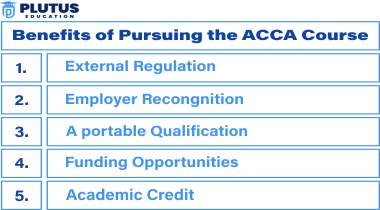The certification of ACCA, or Association of Chartered Certified Accountants, surely changes the game in accounting and finance. It does not simply boost your knowledge and skills but also the avenues available to you in the global world of finance. This article examines what makes an ACCA certification a sought-after qualification for every finance professional.
What Makes ACCA a Coveted Certification?
The ACCA certification is recognized worldwide and provides a powerful foundation in accounting principles applicable across all industries. The certification curriculum is updated regularly to coincide with the latest financial regulations and current practices. It consequently equips the professionals with the relevant knowledge at all times.
Global Recognition and Reach
- Internationally Accepted: ACCA is accepted in more than 180 countries. This is a passport worldwide that an accountant or finance professional can possess.
- Job Opportunities: The certification is considered to be of high worth by employers in multinational companies, banks, and government organizations.
- Professional Networking: With over 200,000 members and half a million students worldwide, ACCA has tremendous networking opportunities.
High Earning Potential
- Salary Prospects: ACCA holders earn much higher salaries than non-holders. Employers appreciate their technical competencies and ethical foundation with this qualification.
- Career Progression: ACCA members advance faster to higher positions in finance and management than others. This is because they are recognized professional experts dedicated to professional development.

What Are the ACCA Benefits of ACCA Qualification?
Benefits extend far beyond any knowledge base an ACCA qualification provides. What it offers instead is the ultimate blend of hands-on skills with strategic thinking and leadership that will be able to drive change in today’s business environment.
Flexibility in Career Options
- Versatile Career Paths: The qualification opens the way to different jobs. For example, a financial analyst, a risk manager, a consultant, and others can be done.
- Entrepreneurial Skills: ACCA also reads about how to manage and scale one’s own business.
Skill Development
- Comprehensive Curriculum: The ACCA syllabus covers key areas such as Financial Management, Taxation, and Ethics.
- Practical Experience: The ACCA Practical Experience Requirement (PER) ensures members gain hands-on experience in real-world finance scenarios.
| Skill Area | Relevance |
|---|---|
| Financial Management | Core to business strategy and operations |
| Taxation | Essential for compliance and advisory roles |
| Audit and Assurance | Key in ensuring financial transparency |
| Ethics and Professionalism | Important for decision-making and integrity in finance |
Continuous Learning
- ACCA CPD (Continuing Professional Development): The ACCA certification encourages lifelong learning, thus keeping members abreast of the changes in the industry.
- Options of Specialization: Members can specialize in any specific area, such as taxation or consultancy, to pursue advancement in their skills.
ACCA Benefits Features
ACCA differs from others in accountancy qualification because it provides a rounded view of finance professionals. Some unique advantage features of ACCA make it a qualification of choice for the quest for high performance in international financial markets.
Financial Knowledge and Ethical Foundation
- Ethical Framework: Ethics and professionalism are vital to the ACCA qualification, which is meant to develop responsible and ethical business decision-making.
- Strategic Decision-Making: The qualification develops strategic thinking to make correct judgments and wise business decisions.
Cost-Effective Education
- Affordability: ACCA is more affordable than other professional certifications. It becomes easier for a person to become a certified accountant with ACCA.
- Flexible Study Options: ACCA also offers flexible study options that allow students to combine their work and learning situations.
Industry Relevance
- Adapts to Trends: The ACCA curriculum mirrors trends within a worldwide finance landscape, ensuring its members remain abreast of the latest worldwide movements.
- Technology Savviness: Focuses only on infusing technology into finance and equips members with future careers that will require huge competencies in digital capability.
Conclusion
In simple words, ACCA certification is not just an academic degree but an investment in your career with multiple benefits or returns. ACCA certification provides three financial benefits: professional skill development, global networking, and higher earning potential. With ethics, adaptability, and practical experience, ACCA prepares you to triumph in today’s dynamic financial world.
ACCA Advantages FAQs
What is the main benefit of ACCA qualification?
The main benefit of ACCA is its global recognition, which enhances your career opportunities in multinational companies and finance roles worldwide.
How does ACCA certification affect career growth?
ACCA certification leads to faster career progression and opens doors to senior finance roles due to its emphasis on strategic and ethical finance management.
Is ACCA worth it compared to other certifications?
Yes, ACCA is cost-effective and offers comprehensive coverage of financial principles, making it a worthwhile investment for a global accounting career.
Can I study ACCA while working full-time?
Absolutely, ACCA provides flexible study options that allow you to balance your work and studies efficiently.
What are ACCA advantage features that stand out?
ACCA’s advantages include its focus on ethical finance, strategic thinking, practical experience, and adaptability to global finance trends.


